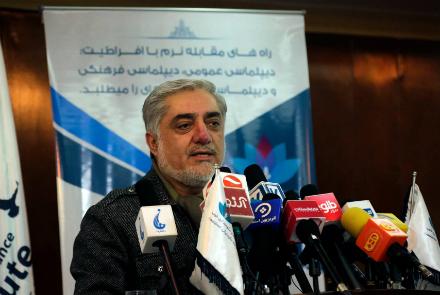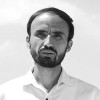Chief Executive Abdullah Abdullah says injustice is one of the main reasons behind the rise of extremist ideologies in the country and that all should unite against this phenomenon.
Scientific figures and religious scholars from Afghanistan, Iran, Pakistan, India and Egypt attended the ceremony.
“Wherever there is injustice, the ground would be provided for the growth of extremist ideologies,” Abdullah told the ‘Peace, Media and Good Governance’ conference.
“Oppression has provided the ground for extremism in this society,” said Abdulhadi Arghandiwal, head of Hizb-e-Islami party.
Some participants at the gathering said most sacrifices related to extremism are made under the name of Islam.
“They behead people and torch innocent humans alive in order to create fear among the people,” said Shaikh Ahmad al-Tayyib, a religious scholar from Egypt.
“Shiite and Sunni has no difference for them, therefore it is a threat for the Islam world. This threat has destabilized those places which have not seen war,” said Ayatullah Makarm Sherazi, a Shiite leader from Iran.
At the same event, the second deputy chief executive Mohammad Mohaqiq said those who chant slogans of fighting against the phenomenon cooperate with this phenomenon. But he did not name any country or individual.
“Following the emergence of terrorism and extremism in the region, only Muslims have been affected, the Muslim countries have been ruined,” he said.
The chancellor of Allama Iqbal Lahori University Ali Asghar said at least 3.6 million students are studying in madrassas, religious schools, in Pakistan and that all of them are under government’s eye.
“A science seeker who studies in a madrassa does not have a knife with him. Those who are in madrassas are scholars, are the science seekers,” he said.
“Violence and bloodshed occurs every day. Who is the culprit of this heinous and unsuitable phenomenon?” asked Akhtar Hussain, chancellor of Nehru University in India.
The participants at the event stressed the need for unity against extremist ideologies in regional countries but said the roots should be found and should be fought unitedly.


